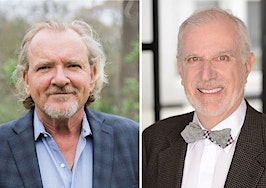I recently sat down with a successful real estate broker-owner who has been in the business for more than twenty years. He is in the midst of a franchise renewal and is torn by his choices. Renew, go indie or unload the company to a bigger firm that had made a serious overture?
His mood was more resignation than opportunity. The noise in the industry is so loud today, it is difficult to make clear-headed choices.
Many brokerages are reeling from market place indigestion. The soup that they are being served these days tastes pretty acrid: slipping profit margins, well-funded new entrants and a lack of listing inventory to enjoy the fruits of an expanding economy.
Now more than ever, whatever their choices, many brokers are taking stock and affirming the importance and value of owning a local brokerage.
Lessons from independent bookstore owners
Thinking about this muddle, the resurgence of independent bookstores might offer some lessons. They have much in common with real estate brokerages. They are idiosyncratic and hyperlocal small businesses with loyal customers, main street presence and independence.
As readers, we relish the joy of walking the book aisles with occasional guidance and insight from an informed human being. It’s the same with real estate. We shop freely for homes with the help and advice from a local expert, a fellow human being who can shepherd us along the way.
Just ten years ago, the fate of indie book sellers was seemingly fatal, just as travel agencies were smacked down by Expedia and as video rental stores were kneed by Netflix.
A dark scenario seemed unavoidable for local bookstores when Amazon began beating up on the publishing industry. It looked like a face off between boxer Floyd Mayweather and the cartoon underdog Kung Fu Panda.

Indie bookstores are thriving.
Weren’t the small family-owned book shops poised to to knocked out? You could almost hear the wringing of hands, as book sellers anxiously awaited their doom. It is the same sound I hear today from many broker-owners.
But small book sellers fought back. And they are winning, today, despite the odds. Lessons for real estate?
Big box bookstores got wiped out, but not indies
The number of independent books stores is growing, as is their bottom line. The myth that Amazon was killing them did not pan out. But it did wipe out the big box bookstores like Borders and Barnes & Noble, opening up market share for the indies.
Harvard Business School professor Ryan Raffaelli studies how industries respond to technological disruption. He has been analyzing independent book sellers, trying to understand how they survived the threat of Amazon.
Raffaelli concluded, according to a report in Quartz, that independent bookstores embraced the “3 C’s : community, curation, and convening”, which explains their resurgence.
Community: Independent booksellers stole customers from Amazon, Borders, and Barnes & Noble by being the local alternative to big box retail and e-commerce.
Any business that has a “community” wrapped around its enterprise is highly valued by customers. Connections are deeper and lead to more business.
Curation: Independent booksellers focused on curating titles for their local customers.
Curating houses for homebuyers is what real estate people do. Are there new and interesting ways to think about it, like an occasional auction at the brokerage?
Convening: Independent booksellers became salons for bringing customers together. Book signings, outside speakers, reading groups and celebrations all became part of the mix.
Many real estate companies are doing the same thing with gatherings around property-related subjects like design, land-use, homebuyer education and innovative new housing types?
Real estate brokerages can follow the same blueprint
The role of the successful local brokerage is changing, as the core business remains the same, helping people buy and sell houses.
Companies are figuring out new ways to leverage their assets and connect better with prospective customers.

A Douglas Elliman office.
Harry Norman Realtors in Atlanta installed free public electric car chargers in their office parking lots. On google maps where chargers are identified, Norman offices stand out. Community service and branding are wrapped into one simple action. Plus, the company got a tax break for it’s good deed.
For broker-owners, their agents are somewhat like book authors who have consistently supported the local bookstores — ambassadors for the brand. Real estate agents enjoy a special community connection and can help broker-owners become more involved in building neighborhood connections.
Brokerages are the place where agents strategize deals. It’s where they cry, laugh and celebrate. It is where they get trained, coached, mentored and help one another when the going gets rough. And, yes, competition thrives. Cut-throat behavior can get in the way sometimes and self-serving motives often trump collaboration. Like any community, it’s not perfect, but it’s a powerful family of local professionals focused on one thing, helping people buy and sell homes.
Virtual and localism: two roads?
Can you imagine a day when agents operate virtually from their homes with no brokerage storefronts or offices. This is the hot new trend that many companies are exploring. But will it work and what is lost?
This is either a Y in the road for the industry, or just another example of how diverse the business has become with varying strategies, business models and approaches to selling homes.

A Corcoran office.
I expect real estate giant Realogy may soon roll out bets on both strategies. It recently announced it was launching two new brands without any details. The idea of localism could be at the heart of one strategy, leveraging its indie brands like New York-based Corcoran and Climb, which is a spirited community-involved, still very independent San Francisco company.
My guess is the other strategy might be some version of a new virtual brand. That trend is enabled by technology, pioneered by eXp Realty and the Keller Williams expansion teams.
Realogy may begin to emulate some version of the Pepsi blueprint, acquire or launch new health brands and keep them as stand alone products. It does not want to become the tired, big-box book seller for real estate. Look for innovation from New Jersey.
Like independent bookstores, brokerages are important local institutions.
Its interesting that they have what every Internet company dreams about; a credible local platform, deep customer relationships that generate reoccurring revenue and local brands that people recognize.













